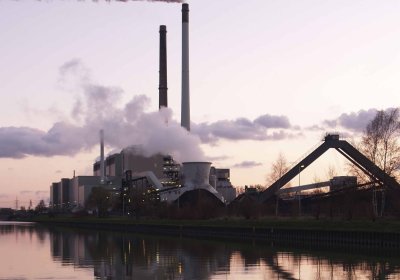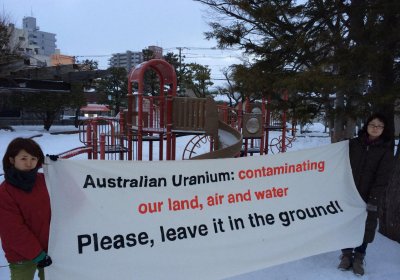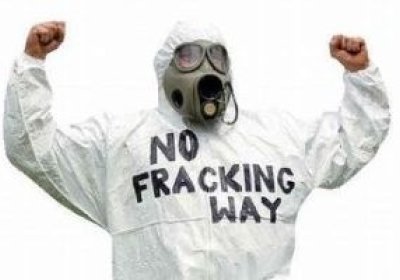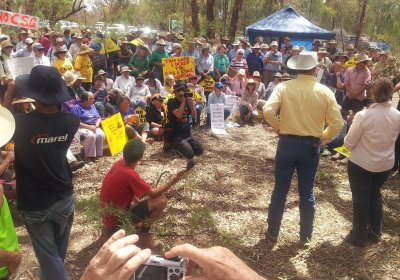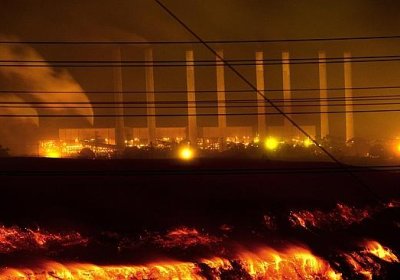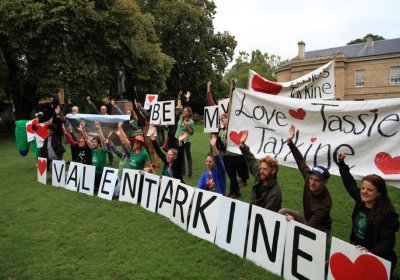The Universal Declaration of Human Rights provides that “everyone has the right to work, to free choice of employment, to just and favourable conditions of work and to protection against unemployment.”
Yet one of the defining features of latter-day capitalism is the extraordinary levels of youth unemployment. Across the eurozone, youth unemployment is about 25%. In Spain it is almost 58%.
Environment
A New York judge has overruled the US$9.5 billion (A$10.5 billion) in compensation for toxic waste dumping that Chevron had been ordered to pay to Ecuadorian villagers.
The oil company, the world’s third largest, was found guilty in 2012 by an Ecuadorian court of causing huge environmental damages in the Amazon Basin. At the time, it was the largest environmental damages lawsuit ever.
Texaco oil company, which merged into Chevron Corporation in 2001, operated in the Sucumbios province of Ecuador, in the uppermost headwaters of the Amazon Basin, from 1964 to 1992.
First there was climate denial. But the mocking laughter of the informed public – along with the indignation of the scientists – finally reached the energy-company boardrooms.
So now instead we get the non sequitur. That’s Latin for “it doesn’t follow”. Rather than lying outright, the fossil-fuel chiefs make nakedly contradictory statements and count on us not to notice.
“Forgetting Fukushima makes it more likely that such a nuclear disaster could happen elsewhere,” said Tatsuko Okawara, one of the hundreds of thousands of victims of the Fukushima accident that began on March 11, 2011.
The nuclear industry, however, is trying its hardest to make us forget. It is downplaying the impacts of the accident, ignoring the fact that the Fukushima reactors are still not under control and claiming that lessons have been learned. Nothing is further from the truth.
Beyond Nuclear Initiative released this statement on March 11.
***
On the third anniversary of the continuing Fukushima nuclear crisis, environment groups have called on New South Wales Premier Barry O’Farrell and his government to shelve plans for uranium exploration and mining in the state.
ACF nuclear free campaigner Dave Sweeney said: “It was confirmed to the federal parliament in October 2011 that Australian uranium directly fuelled Fukushima.
More than 350 climate activists were arrested March 2 in Washington, DC, after zip-tying themselves to the White House fence.
The civil disobedience action was the highlight of two days of protest, dubbed XL Dissent by organisers, to demand that the Obama administration reject building the Keystone XL pipeline.
The pipeline runs from Canada through the US and will shift oil from tar sands in Canada, which emits more greenhouse gases than conventional oil when burned. The Obama administration is yet to make a decision on allowing a key part of the pipeline to be built.
In late January, the Environmental Protection Authority (EPA) decided not to assess a proposal for fracking in Western Australia’s Kimberley region.
Buru Energy plans to conduct 34 fracks in the region starting this year.
It intends to conduct most of these fracks at four existing wells: two at Yulleroo, 90 kilometres east of Broome, and two at Valhalla/Asgard, 320 kilometres east of Broome.
John Fenton is a farmer from Wyoming in the United States who has 24 gas wells on his property. He recently toured Australia to speak about the environmental and health impacts the gas industry has had on his land and community.
He spoke at 11 meetings in gas hotspots throughout Queensland, New South Wales and Victoria, organised by the Greens and Lock the Gate Alliance. These meetings were well attended. In Narrabri, in northern New South Wales, 600 people came to hear him speak.
Several prominent forest advocacy groups, including the Huon Valley Environment Centre and Still Wild Still Threatened, released this joint statement on March 5.
***
Australia’s forest advocacy groups have responded to Prime Minister Tony Abbott’s attack on forests and praise for the industry that destroys them. Many of Australia’s forest conservation groups have been working to have the remaining forests and the wildlife within them protected over the decades.
The Socialist Alliance Victoria released this statement on March 2.
***
The mine fire that has been burning since February 9 is an immediate and serious threat to the health of residents in Morwell and other towns near the Hazelwood mine.
Immediate health threats include: elevated levels of carbon monoxide, a toxic gas; fine particulate pollution in the PM2.5 and PM10 size range; ash fallout over the area, potentially containing many toxic compounds; carcinogenic compounds in ash and particulates.
Victorian Premier Denis Napthine is living up to his new nickname, “Naptime”, as the Hazelwood coalmine fire continues its terrible impact on the town of Morwell in the Latrobe Valley.
The edge of the town is only a few hundred metres from where the fire has been burning since February 9. The plume of toxic smoke and ash from the fire has been blanketing the town.
The Tarkine wilderness in north-west Tasmania is under threat from iron ore mining.
The National Tarkine Coalition took Perth-based exploration firm Venture Minerals and the Tasmanian state government to the federal court last month to challenge a proposed iron ore mine at Riley Creek in the Tarkine.
- Previous page
- Page 185
- Next page

